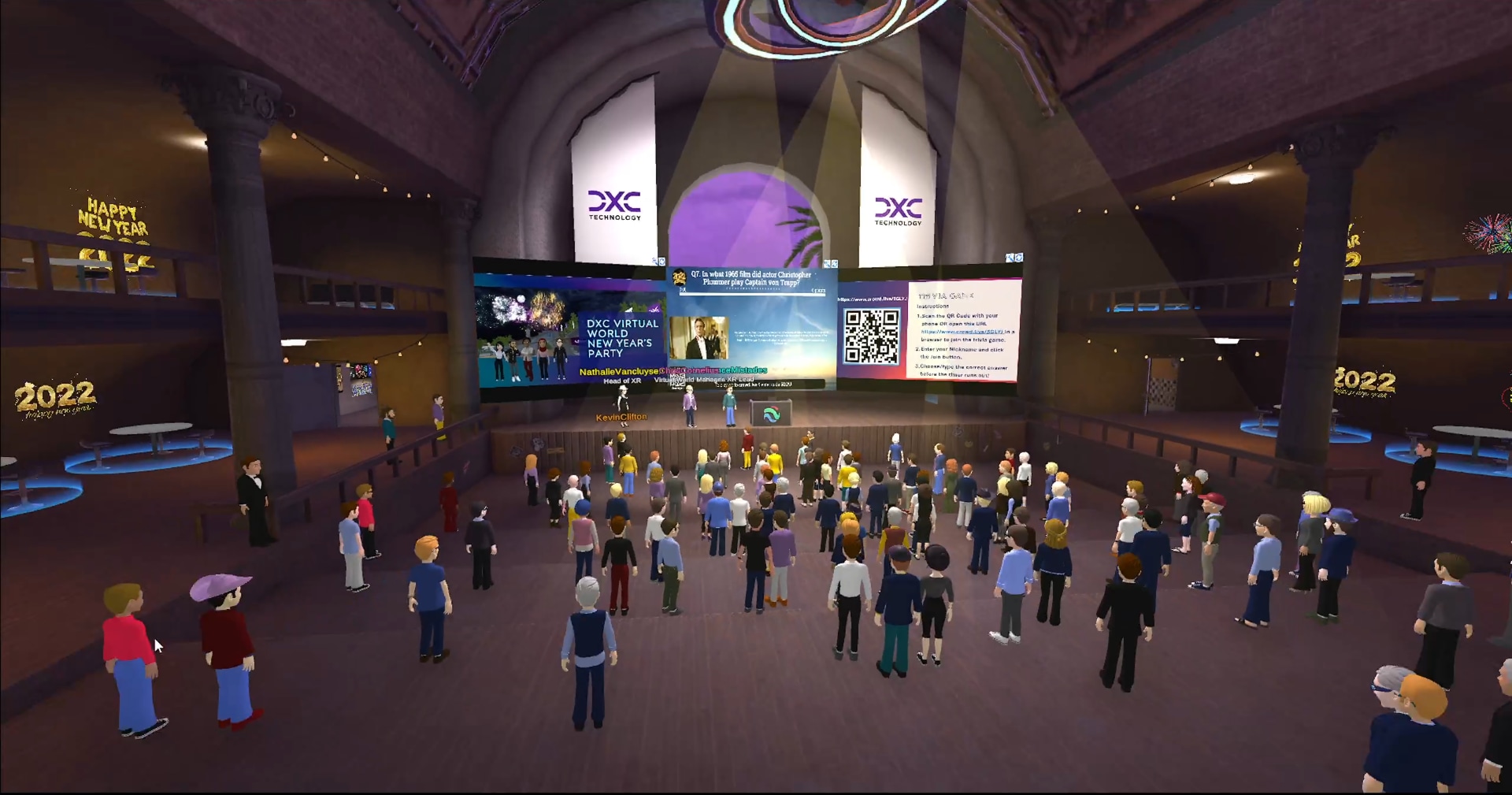Building an inclusive metaverse starts now. Here's how

DXC virtual world: a real meeting in the metaverse Image: Martin Sanchez/Unsplash
Listen to the article
- Continuous delaying of a worldwide post-pandemic reopening has meant some form of virtual working is likely long-term.
- The metaverse can provide benefits to companies and workers alike, enabling collaboration in a stimulating 3-D environment.
- To deliver on its potential, the metaverse must be inclusive from the outset, drawing on experience of grassroots players and leading sectors.
After worldwide anticipation of a big post-pandemic reopening, a new COVID-19 variant has effectively put those plans on hold in many countries; and most of us, by now, are resigned to the permanence of some form of virtual work.
From our experience managing the workplaces of over six million users, DXC Technology knows that many workers feel torn between the freedom and flexibility of remote work and the desire to reconnect with colleagues and clients. A Microsoft Work Trend Index study from March highlights this dichotomy. Over 70% of workers want flexible remote work options to continue, while over 65% crave more in-person time with their teams. The evolution of immersive virtual technologies could now enable organizations to give their employees the best of both worlds.
Earlier iterations of virtual worlds, such as Second Life, may have seemed more like a diversion or a novelty, but millions of workers are already meeting colleagues in virtual spaces provided by Microsoft, Meta, Virbela and others. Bolstered by the pandemic, tech companies are now looking to transform virtual workspaces into a “metaverse” of social and business interactions in a stimulating 3-D environment. The potential to improve collaborative equity is significant.
Building the metaverse, responsibly
As we build these virtual worlds, we must do three things: prioritize inclusivity, learn from grassroots innovation and embrace collaboration.

1. Inclusive from the outset
We must ensure inclusivity is the starting point and not an afterthought of the metaverse. While we don’t have all the answers, we at DXC Technology are actively using virtual world technologies in the light of our decision to move to a “virtual first” model for our more than 130,000 employees in 70 countries. This simple and clear policy means that today 99% of our global workforce is enabled to work from anywhere and, when needed, to access purpose-built offices—whatever best fits their needs. We believe that virtual first models are not only better for the environment but, crucially, for the people who use them. Our experience shows that employees of virtual first organizations, especially those with access to opportunities to collaborate in the metaverse, are more productive, more engaged and can take part in their communities in new ways.
Increased inclusivity is also an inherent benefit of virtual environments where a person’s location, gender, physical attributes, or personal circumstances are less important than their ideas or the quality of their work. As a result, organizations will benefit from diverse new talent pools from previously underrepresented groups. From mothers nursing their infants to people with physical or psychological challenges, no one needs to be excluded from a virtual workplace.
But for virtual environments to be genuinely inclusive, tech companies must provide everyone with the tools and technologies they need to take part and feel represented. This provision isn’t just about giving people laptops and creating diverse-looking avatars, but also addressing people’s physical challenges, such as providing control interfaces for those unable to use a conventional keyboard. These are issues that need to be addressed now as we lay the metaverse’s foundations.
2. Embrace grassroots initiatives
One way to ensure virtual environments fully represent the people using them is to tap into the existing work by those driving innovation from the ground up. Such grassroots initiatives are instructive, highlighting the needs of those vulnerable to marginalization as the metaverse grows.
Dr. Peter Scott-Morgan, for example, is leading a project to ensure accessibility to virtual environments. Since learning of his neurodegenerative illness, amyotrophic lateral sclerosis (ALS) or motor neuron disease (MND), in 2017, the British-American scientist and inventor has been fighting back with technology and volunteered to become the “world’s first human cyborg.”
At the heart of the initiative is a project to create a realistic, AI-powered and eye-controlled avatar of himself that will enable him to continue to play an active role in society. Dr. Scott-Morgan wants his Peter 2.0 avatar and other pioneering technological solutions that he and his team are developing to offer hope to people with extreme disabilities and other life challenging conditions everywhere. DXC Technology is proud to be working with his philanthropic foundation to help make that happen.
3. Collaborate to build the metaverse
No single company, country or culture can build an equitable and inclusive metaverse. That’s why the global IT community should unite with the communities they serve to develop open, secure and trusted virtual environments.
We now have the opportunity to reflect on and build the type of metaverse we want, drawing from vast experience, including the gaming industry, which has long empowered people to break free from the limitations that they may experience in the physical world.
Technology has an excellent track record in helping to level the playing field in society and the metaverse is the next chapter. If developed properly, it could help foster the global inclusivity and exchange of ideas necessary for the future.
Don't miss any update on this topic
Create a free account and access your personalized content collection with our latest publications and analyses.
License and Republishing
World Economic Forum articles may be republished in accordance with the Creative Commons Attribution-NonCommercial-NoDerivatives 4.0 International Public License, and in accordance with our Terms of Use.
The views expressed in this article are those of the author alone and not the World Economic Forum.
Stay up to date:
The Metaverse
Related topics:
Forum Stories newsletter
Bringing you weekly curated insights and analysis on the global issues that matter.
More on Forum in FocusSee all
Gayle Markovitz
October 29, 2025







